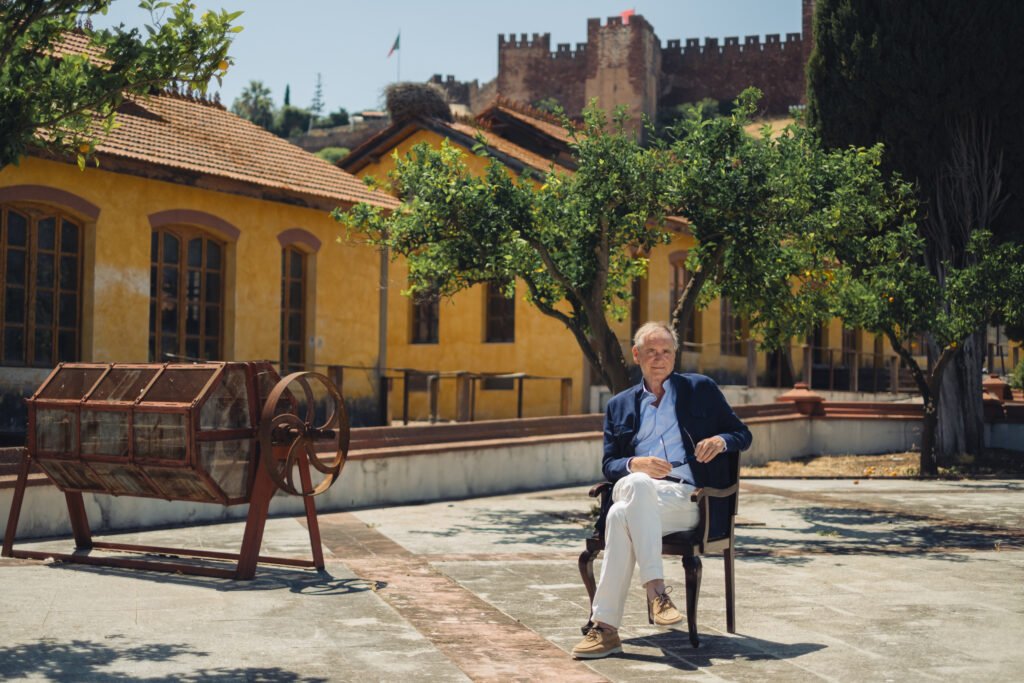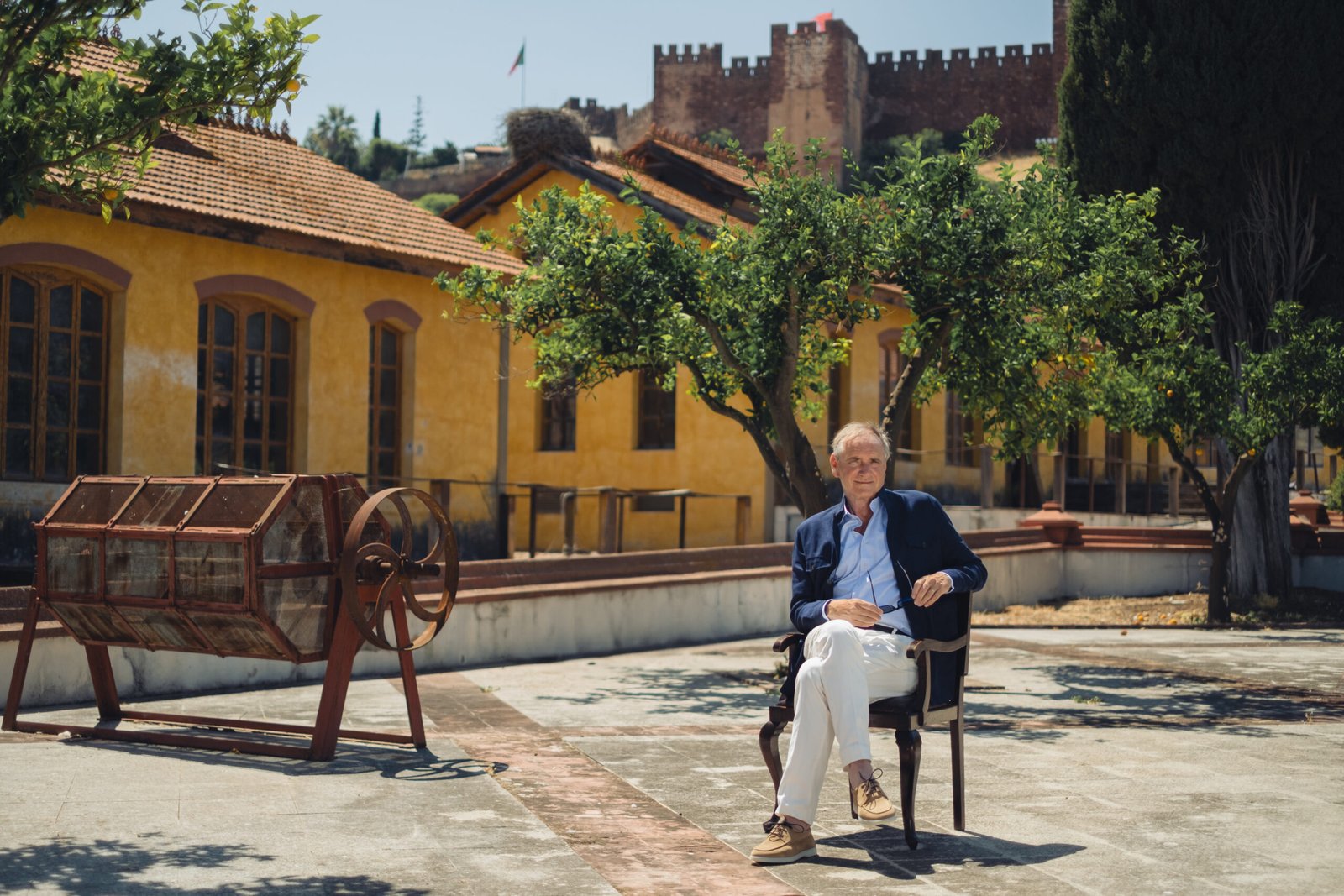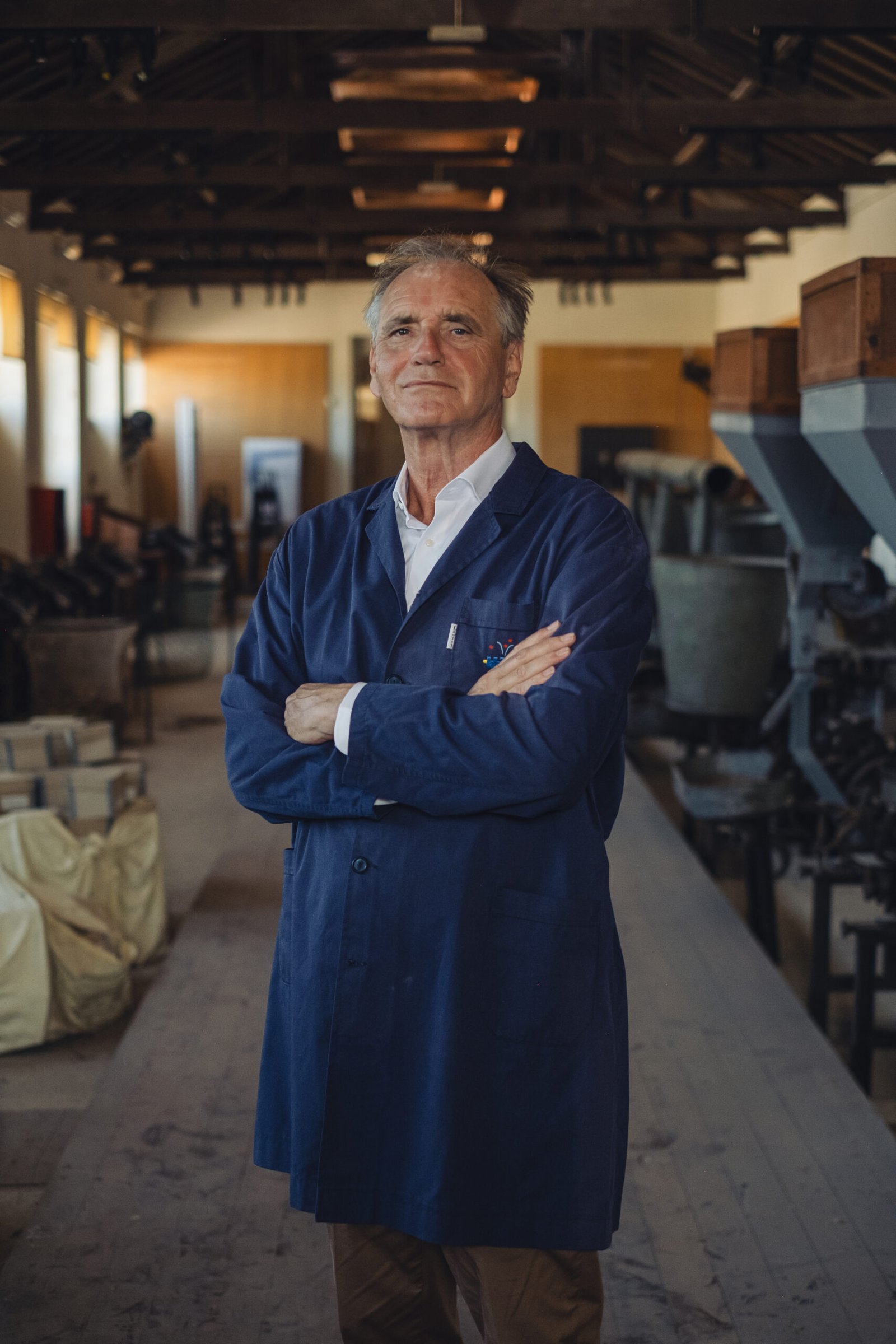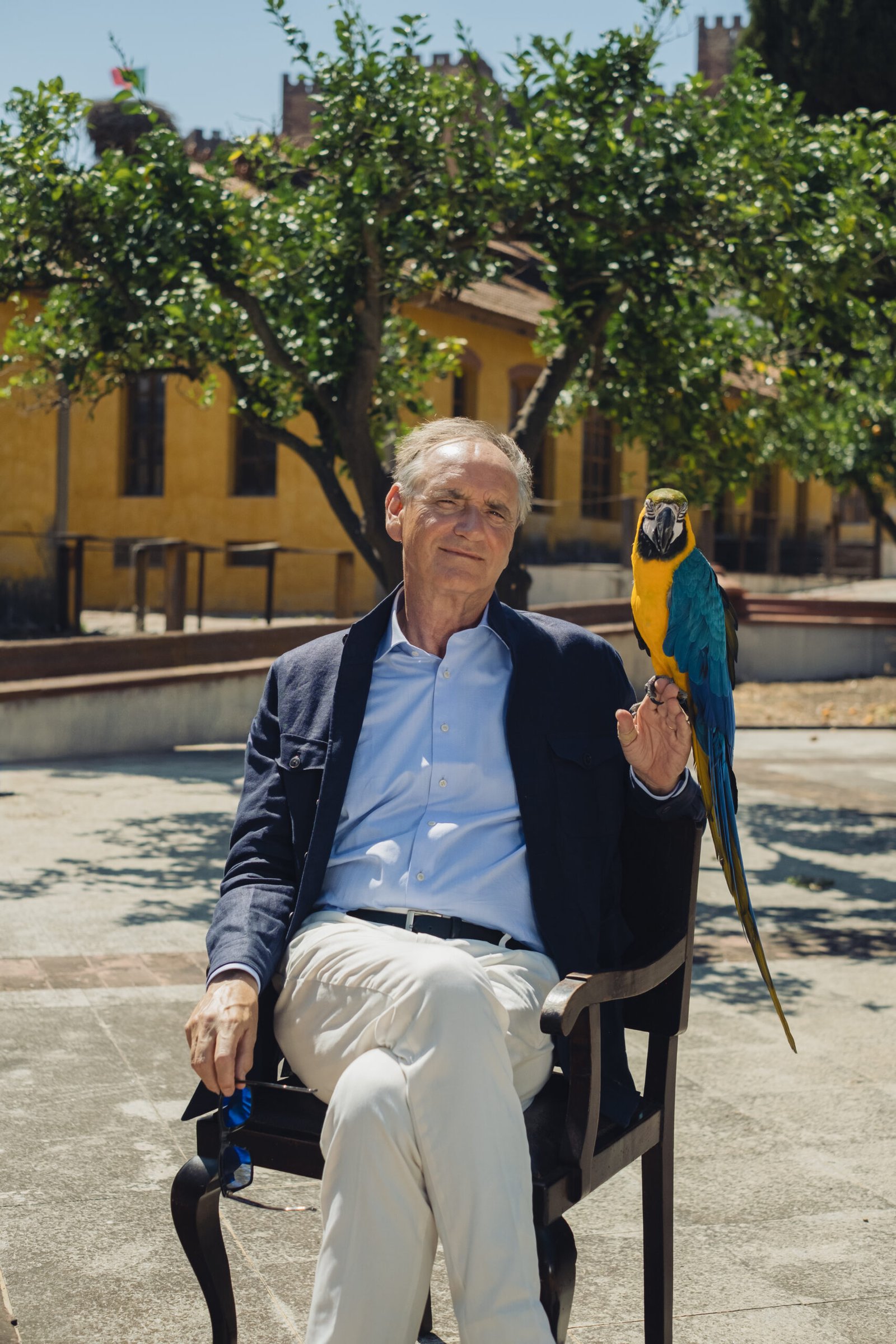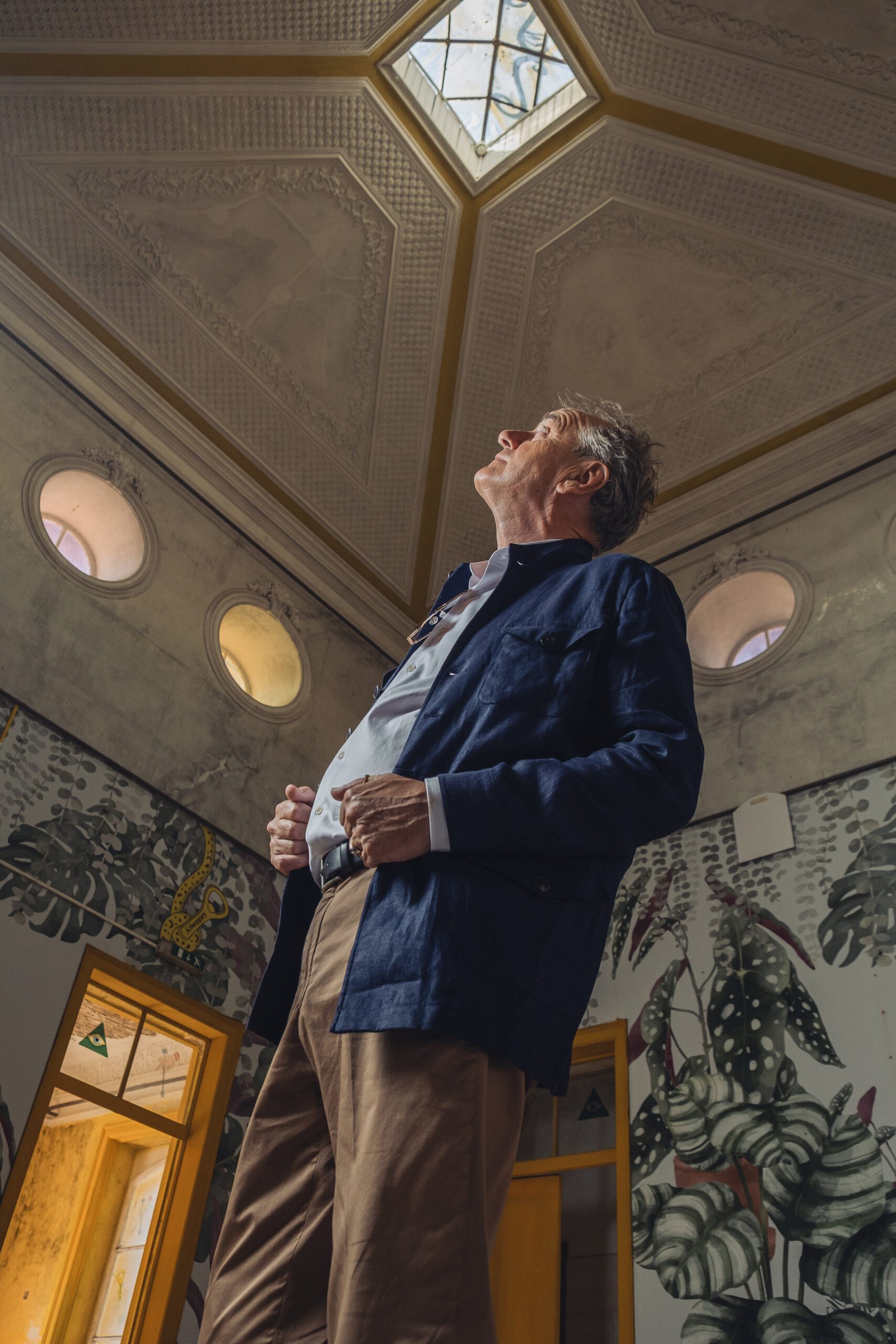Featuring | Erik de Vlieger Photography | Alexandre Ahmarani
Clothing | Fashion Clinic & Hackett London Styling | Angela Jesus Makeup | Sarah Contreras
If you’ve spent time in the Algarve, you’ve likely heard the name Erik de Vlieger, a man whose business instincts are as sharp as his resolve. Best known as the driving force behind Carvoeiro Branco, Erik has steadily carved a reputation for reviving architectural landmarks, reshaping forgotten corners, and creating properties that feel more like curated experiences than mere developments.
Carvoeiro Branco isn’t just a real estate company; it’s an ethos. With nearly two decades of experience in both affordable housing and luxury projects, Erik’s vision has consistently pushed boundaries across the region. The portfolio includes everything from The Court in Carvoeiro, a striking resort-style residential complex featuring 104 elegantly furnished apartments across two buildings, enhanced by luxury amenities and a guaranteed minimum 5% return in the early years, to broader masterplans like Vale da Pipa Residences, Atrium Lagoa, Match Lagoa, PrimeLife Village in Lagoa, BelaVista, Ferragudo, and Vale de Milho Village.
Adding to the scale of their ambition, Carvoeiro Branco recently acquired the historic Fábrica BelaOlhão, a former industrial site in Olhão, where they’re leading a €300 million mixed-use redevelopment. The plan: to create up to 500 luxury residences and hospitality venues that blend urban regeneration with sophisticated seaside living.
Now, all eyes turn to Silves. The 19th-century Fábrica do Inglês, once a thriving cork factory and later home to Portugal’s Cork Museum, has sat dormant for years, its iconic red-brick façade weathered, but not forgotten. Carvoeiro Branco has stepped in with bold plans to breathe life back into the site, not just as a restoration project, but as a cultural, events, and public space that honours its heritage while embracing its future. The company is also relocating its head office to the heart of the site, a practical and poetic decision that places Erik’s team amid the legacy they are helping to revive.
Most recently, Carvoeiro Branco has also evolved into a fully fledged construction company, giving Erik and his team tighter control over quality, timelines, and budgets. It’s a natural evolution that reinforces their hands-on, design-led approach, a rare combination in the Algarve’s property landscape, and one that mirrors Erik’s philosophy: do it right, not rushed.
Fresh from a recent visit to the UK, Erik met with Steve Varsano, better known as The Jet Man. Varsano, the founder of The Jet Business, is a high-flying entrepreneur with a taste for scale, precision, and elevation. Their meeting wasn’t just symbolic; it was a convergence of visionaries, both daring in business and obsessed with detail. “It reminded me,” Erik reflects, “that we’re all capable of more when we think bigger, whether it’s building an empire in the sky or restoring a national treasure on Portuguese soil.”
As the Fábrica do Inglês prepares for its rebirth, it’s more than just a building that’s being restored; it’s a piece of Portugal’s cultural soul. From the Court’s modern leisure-led living to the monumental Olhão regeneration, this is more than property. This is the purpose, with Erik de Vlieger at the helm.
Erik, it’s a pleasure to meet you at Fábrica do Inglês. How did this project initially capture your attention, and what led you to commit to it?
Since 2006, I’ve had my eye on Fábrica do Inglês. I’ve always considered it one of the most culturally significant real estate assets in Portugal. Unfortunately, a bank in Lisbon refused to sell it to us over a decade ago, and instead financed a Lisbon-based developer who, while I mean no offence, was trying to manage it remotely. You can’t restore a cultural icon like this from a distance.
Eventually, we acquired the project from that developer, under pressure from the same bank, which, in my view, never cared about the heritage at stake. Watching the Fábrica deteriorate week by week was heartbreaking. We had to step in, especially since the Silves council didn’t have the authority to intervene effectively. To their credit, the Câmara, particularly the mayor and the architecture department, offered us tremendous support. They understood the urgency and the potential of this project. I thank them for that.
Unlike some other Câmaras in the Algarve, I proposed to several of them the construction of affordable housing in line with the policy of the Portuguese government. Some of the Câmaras responded positively, but most looked at me like a rabbit caught in headlights.
Therefore, I hereby challenge every Câmara in the Algarve to enter into a dialogue with Antrix SA and Carvoeiro Branco.
You’re both a developer and now a construction company owner. How has this dual role changed your approach to business?
Our construction company was born out of necessity. We struggled to find consistent, reliable contractors in the Algarve. So we made a clear decision, for projects under €7.5 million, we build them ourselves. For larger developments, we still partner with major firms from Lisbon and the North. This hybrid approach gives us greater control over quality and timelines.
What drew you to Portugal, and the Algarve specifically? Was it strategic or instinctive?
Portugal is one of the best countries to live in, period. Of course, it has its challenges, bureaucracy being a notable one, but when you weigh the positives against the negatives, the choice is clear. It wasn’t just strategic, it was instinctive too.
You’ve been described as a maverick, sometimes divisive. Do you embrace that label, or do you think it’s a misunderstanding?
If being a maverick means speaking up for progress, then yes, I’ll take it. The Algarve needs more than just tourism. We need industry and innovation, or else young talent will keep leaving. Wages need to rise. And for that, mayors and municipal leaders must step up and collaborate. Sometimes, to challenge the status quo, you need to be bold, and if that makes me divisive, so be it.
What’s been your most satisfying failure, the kind you’d repeat for the lesson it taught you?
Every failure brought me forward. Failure is essential. At my age, I see it not as a setback but as tuition. You pay for experience, one way or another. That’s life, and it’s worth it.
Legacy is a big word. What kind of imprint do you hope to leave behind, in Portugal and beyond?
I do business as if I’ll live for 10,000 years. It’s far too early to think about legacy.
At 63, how do you strike a work-life balance? Can you switch off, or is your mind always building something new?
No, I don’t switch off. Work is always present. As long as I’m healthy, I keep going. I make long days and usually work a few hours on the weekends. It’s part of who I am.
If your time in Portugal were turned into a film or book, what would the title be, and would it be fact or fiction?
Well, I’ve already written my autobiography, and by accident, it became a bestseller in both the Netherlands and Belgium. So that’s my film. And yes, it’s all fact.
